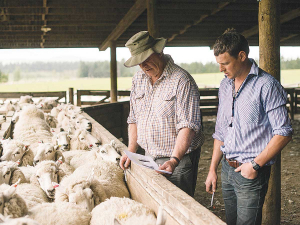Editorial: Goodbye 2024
OPINION: In two weeks we'll bid farewell to 2024. Dubbed by some as the toughest season in a generation, many farmers would be happy to put the year behind them.
 The continuing impact of Covid, soaring input costs, labour shortages and ever growing regulation continued to steal much of the shine off good prices.
The continuing impact of Covid, soaring input costs, labour shortages and ever growing regulation continued to steal much of the shine off good prices.
OPINION: As 2021 draws to a close, most farmers will be looking forward to it ending and hoping for better things in 2022.
Strong commodity prices and good growing conditions, on the whole, have meant a reasonable year for most of the country's farmers and growers. However, the continuing impact of Covid, soaring input costs, labour shortages and ever growing regulation continued to steal much of the shine off good prices.
During the year, for the first time in a generation, farmers and rural people in their tens of thousands took to the streets in towns and cities - not once but twice - up and down New Zealand to express their concerns and consternation about where things are going for people living in the country. All at a time of near record milk payouts, horticulture and red meat returns.
Surely this points to something seriously wrong going on. However, those in the Government, bureaucracy and parts of our farming leadership appear either oblivious or downright scornful of this justified farmer angst.
Much of the blame for this can be fairly sheeted home to the levy bodies, which seem to have made little to no effort to get proper farmer mandates before taking their advocacy positions.
It seems their desire to "be at the table" to share drinks and canapés with current Government ministers has taken priority over properly advocating for their farmer levypayers. These organisations have pretty much 'lost the room' with regards to grassroots farmer support and hence the emergence of an outfit like Groundswell. One suspects that the information the Prime Minister is currently refusing to release about that rural lobby group has been garnered from sources within these levy bodies and is highly derisory.
It will be interesting to see how those bodies react if the looming carbon emissions regulation and targets for the agricultural sector are roundly rejected by their levypayers during the rounds of consultation early next year. Will they kowtow to the Government - as they have over the past four years - or finally stand up and fight for what farmers demand?
Despite this, they have shown some backbone in advocating for the split-gas approach (treating methane separately to long-lived gases) and the opportunity to develop a sector solution in He Waka Eka Noa.
Roll on 2022 and better, stronger sector advocacy!
Agrisea NZ has appointed Craig Hudson as it's new chief growth officer.
State farmer Landcorp, trading as Pamu, is a forecasting a full-year net profit of around $100 million.
Tony Aitken, chief executive of Ruralco, has been awarded the Excellence in Business Leadership Award at the ANZ Business of the Year Awards.
Global trade has been thrown into another bout of uncertainty following the overnight ruling by US Supreme Court, striking down President Donald Trump's decision to impose additional tariffs on trading partners.
Controls on the movement of fruit and vegetables in the Auckland suburb of Mt Roskill have been lifted.
Fonterra farmer shareholders and unit holders are in line for another payment in April.

OPINION: Here w go: the election date is set for November 7 and the politicians are out of the gate…
OPINION: ECan data was released a few days ago showing Canterbury farmers have made “giant strides on environmental performance”.